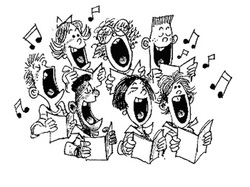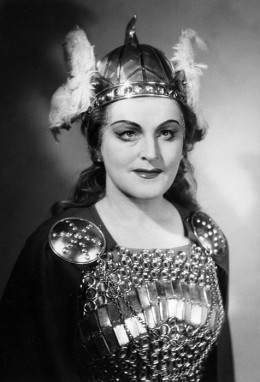|
Poor altos, squashed between those diva sopranos and belting tenors, what hope is there for them?
"...for lots of choral pieces, many people would have a hard time picking out the alto. Sometimes, I'm shocked to hear a recording of a piece for which I've memorized the alto part, and I can't pick out the line. Yet if the altos were missing, the piece would feel wrong and empty. Often, the alto line is magical, just below consciousness. The alto line is texture, changing light, tension, weather." Read more from Anna George Meeks' An Alto's Eye View of Choral Music
1 Comment
Basses, the lower of the two male voice types in a standard choir, tend to be grouped together in the back rows. Partly this is to do with height (can't have those divas a.k.a. sopranos being hidden!), and partly to do with balance. Those boys can sing loud!
If you've ever wondered what's going on in the back rows, here's an amusing insight by Jim Ramlet a seasoned chorister with VocalEssence Ensemble Singers. Bass (singer): This refers to basses in choir. Not the musical instrument or the fish. A bass in [a] choir is a man that sings in the lowest range. The kind of man whose voice seems to literally make the stage vibrate with its low, resonant, reverberating and rich sound quality. The kind of man who kicks baritone and tenor arses collectively. The kind of man who adds depth to any choir song. For those of you who are not familiar with the choral music of Eric Whitacre, can I gently suggest that you become so. Now. Really, you'll thank me. Here's a good place to start, I'll wait while you watch this. You're welcome. Here's a link to an interview with Eric about choral singing. I particularly like this quote: I’m also attracted to the sheer egalitarian, democratic nature of the choir – the way that the self disappears and you become part of a bigger whole when you sing in a group. A choir is like a little village: made up of individual personalities, but the whole is greater than the sum of its parts. We are under way with rehearsals for our Christmas concert on 2 December. We are joining with Ascot Park Hotel Brass Band. A Capella Concertino will be performing Sir John Tavener's 'The Lamb' , a most haunting and beautiful piece. Here is a performance of it by the Tenebrae Choir  Our Best of British concert is over and I think everyone was very happy with the way we performed. Not a large audience (sometimes a lovely day can be a drawback for a concert day!) but a very appreciative audience. Di had us perform the last item with no music, something we haven't done for a long, long time and guess what? We all coped. I think it is something that we should endeavour to do more often as there is considerable benefit to be had in both the process and the end result. In a sense, some members of the choir who don't read music already do this to a large degree, although they still have the words to refer to. Being music-less requires that you know the music thoroughly, especially the length of rests and in phrases that are similar but slightly different (I'm thinking of Rutter's 'Gaelic Blessing' here), knowing exactly the note values. Not being able to see where other parts come in - especially those you make use of to know when your own part starts - forces you to really concentrate and, I think, appreciate much more the interweaving of parts. The other important thing that happens is that -gasp!- everyone watches the conductor, all the time. Everyone decrescendos together, comes off the end of the phrase together, resulting in a much more nuanced and effective performance. It reminds us that the music we have in front of us is a reference, not a book to bury our heads in. Next up, our choir joins again with Dunedin's Star Singers and the Central Otago Singers for a concert in Dunedin on 9 September. at the OBHS Auditorium, 2pm. and then we will start preparing for our Christmas concert later this year. Peter Lenihan, President of ACS, long-serving choir member and husband of our Musical Director Di, is terminally ill and is now in Hospice. Our thoughts and prayers are with Di and the Lenihan family.
Dido and Aeneas is over, and we are now looking forward to a concert themed 'The Best of British'.
I came across an interesting article recently regarding traditional boy choirs in Britain and the problem they are having with boys' voices maturing earlier than in the past. You can read the full article here I am very excited that ACS are going to do the Purcell opera Dido and Aeneas. It contains one of the most beautiful arias in the English language - Dido's 'When I Am Laid In Earth'. Click here for the synopsis. There have been many great interpretations of Dido over the years, here are tow very different ones singing 'When I Am Laid In Earth', first mezzo Dame Janet Baker and then soprano Dame Emma Kirkby. On 4 December the choir was privileged to be part of the world premiere performance of music from 'Let There Be Joy!' a book of music with scottish connections for Advent, Christmas and Epiphany, edited by Dr Raymond White. The book was published earlier this year along with a book of keyboard music 'A Kist o' Whistles.
We were accompanied by a chamber orchestra lead by Dean Hollebon, together with the chamber organ played by Dr White and Gregory Peyroux. I have to say this would have been one of the more difficult concerts to prepare for, mainly due to the unfamiliarity of some of the words and the way that many words are stressed differently to what we are accustomed. Take the first verse of Rorate, Celi. Desuper! : Rorate, celi, desuper Hevins distill your balmy schouris for now is rissin the brycht day ster from the ros Mary, flour of flouris The cleir sone quhome no clud devouris surminting Phebus in the est is sumin of his hevinly touris et nobis puer natus est. Dr White was very patient with us while we came to grips with pronunciation and style. Unlike our usual sort of music, where we pencil in markings above or below the notes, our books instead had marks over the words which were all written on the facing page. It was neccesary to learn the tune quickly so that you could concentrate on the words. I'm sure in the first few rehearsals we would have looked like a crowd watching a tennis match! The hard work paid off and I think we gave a creditable performance, with excellent accompaniment provided by a chamber orchestra. We had a gratifyingly large crowd who certainly seemed to appreciate the music. The writer made her conducting debut which has made her appreciate even more the amazing job done by our musical director Di Lenihan! There is a split-second of terror prior to the first note the choir sings, wondering if you have given them the right signals so that they will come in. |
AuthorI'm a soprano :) Archives
May 2017
Categories
All
|


 RSS Feed
RSS Feed
